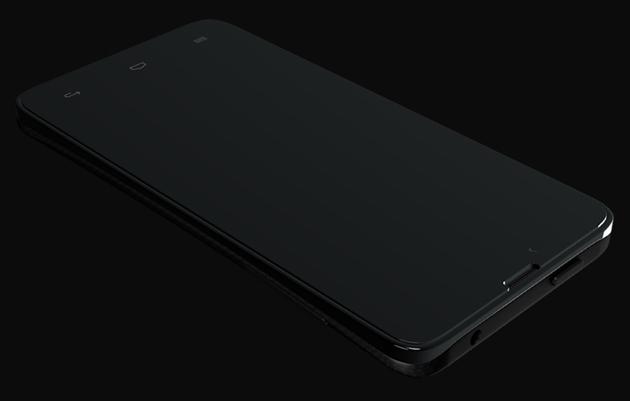
Security is a pretty big thing these days as we continue to learn about certain shenanigans happening across multiple countries and industries. What first started out as an alarming whistleblow on the United States' own NSA soon became an international issue as more agencies like the NSA were found to be guilty of doing essentially the same thing. Without getting into too much detail, let's just say that for the most part, people are feeling pretty insecure about what goes on in the virtual aspect of their lives.
This, of course, includes smartphones. So naturally in retaliation of such questionable practices you're going to have companies who try to step up and be "the good guy" and set records straight. This holds true for this case as well, as Geeksphone tries to sway you with their secure Android device, which they call Blackphone. Basically, the idea behind Blackphone is that they can stop agencies like the NSA from remotely accessing your phone.
And that's about the point where I realized I didn't - I couldn't - believe it.
First and foremost, the name of the phone itself couldn't be any sketchier. That's my first issue.
The second issue that I have with this phone is that they're blatantly putting themselves out there as being more secure than any other device because of "special codes" or what-have-you - crazy magic that's supposed to keep this other "bad" magic out. While that is all fine and dandy for the moment being, the big problem here is that they're basically issuing a challenge to these agencies to try and crack the code to get in, and probably moreso than any other phone or person they might be interested in. It's like they're actively putting a target on the back of anybody who uses this phone. It's being the knight in shining armor who approaches the dragon with a shield and says "Na na na na naaaa na," with a follow-up spittle, but guess how well that does against the dragon which is a hundred times larger and has fire breathing abilities? Shining armor or not, that fire can melt right through it if it's hot enough.
I guess what I'm saying is, at this point I don't trust anybody. Actually, I never trusted my phones to be safe in the first place. Should they be safe? Sure, and in a perfect world they would be. We should always feel safe, but at the same time I've pretty much grown up thinking that my securities and freedoms are somewhat limited, especially in the virtual world. This laptop that's currently connected to the Internet puts me in touch with millions upon millions of other people just by being connected. Most people have good intentions; some people have malicious intentions. This is common sense pertaining to Internet use in general. And given that our smartphones are often described as being tiny computers in our pockets, the same can be said for smartphones. Most people have good intentions; some people have malicious intentions. That's just the way of it.
I'm not saying that the Blackphone is not doing something to try and help the situation, but there's a lot more to it than just creating one phone that these agencies are (likely) going to target at this point because targeting threats is what these agencies do for a living. That is their job. Creating a phone that is advertised as being so secure that security agencies can't break in to them is probably going to be considered a threat. So although I suppose a phone like that is somewhat of a step in the right direction, it's not something that I think could fight the war they want to fight alone. It's going to take a lot more, both technologically and politically, to accomplish what it is they want to accomplish.
Images via Liliputing, Vimeo